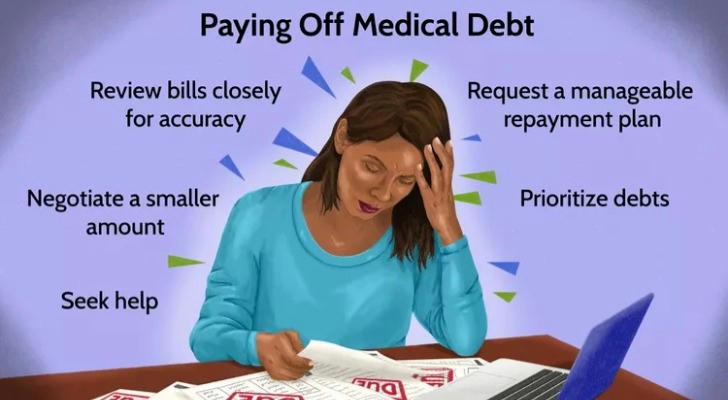Medical Bills Too High? How U.S. Families Can Avoid Financial Meltdown from Healthcare Costs
In the United States, a trip to the hospital can feel more stressful than the illness itself—especially once the bill arrives. You might have insurance, a stable job, and a savings account. But even then, one unexpected medical procedure can throw everything off balance.

So, what’s really going on with healthcare costs, and more importantly—how can families protect themselves?
1. Why Are Medical Bills So Expensive in the U.S.?
Let’s start with a painful truth: the U.S. spends more on healthcare per person than any other high-income country. According to the Peterson-KFF Health System Tracker, in 2022, the U.S. spent over $12,000 per capita on healthcare. For comparison, that’s nearly twice as much as countries like the U.K. or Japan.

But where does that money go?
Hospital services: The price tag for something as simple as an overnight stay can be shocking. Private hospitals charge differently, and costs vary widely from one facility to another.
Uninsured treatments: Even with insurance, many plans come with high deductibles. That means you’re paying out of pocket until the deductible is met—and even then, co-pays and non-covered services can add up fast.
Surprise billing: You might go to an in-network hospital but get treated by an out-of-network provider without knowing. These surprise charges often leave families feeling blindsided.
2. The Real-Life Impact on Families
Let’s talk numbers.
A report by the Commonwealth Fund found that 4 in 10 adults in the U.S. struggle to pay their medical bills. And it doesn’t just hurt their wallets—medical debt is the leading cause of personal bankruptcy in America.
Beyond finances, the stress of debt often spills into daily life:
People delay care out of fear of future costs.
Mental health suffers as anxiety over debt grows.
Families might cut back on essentials—groceries, rent, school supplies—to handle payments.

3. How Can Families Protect Themselves?
Medical expenses might be high, but that doesn’t mean you’re helpless. Here are some practical steps families can take to stay afloat:
🩺 A. Always Ask for an Itemized Bill
Before paying, request a detailed breakdown of the charges. Billing errors are more common than you think—double charges, services never received, or incorrect coding can sneak in. Catching these mistakes early can save hundreds.
💬 B. Don’t Be Afraid to Negotiate
Yes, you can actually negotiate medical bills. Call the hospital’s billing department and explain your situation. Many hospitals offer hardship programs or can lower the amount if you’re paying out of pocket. Some may offer zero-interest payment plans.
🧾 C. Understand Your Insurance Inside Out
Knowing what your plan covers (and doesn’t) can make a huge difference. Before scheduling procedures, call your insurer and confirm whether a service is in-network and what your expected out-of-pocket cost will be. It might not eliminate the bill—but it helps you prepare.

💡 D. Use Health Savings Accounts (HSAs)
If you qualify for an HSA, it allows you to set aside money pre-tax for medical expenses. It won’t make healthcare cheaper, but it does reduce the amount of income tax you pay, giving your budget some breathing room.
🤝 E. Seek Help—Quietly but Strategically
There are community health advocates, nonprofits, and even hospital financial counselors who can guide you through confusing bills. They can help file appeals or find assistance programs tailored to your income or condition. While not always widely advertised, these resources can make a difference.
- A Hidden Danger: Medical Debt and Your Credit
Even if you’re making small payments, unpaid medical bills can end up in collections. Though recent changes by credit bureaus have lessened the impact, medical debt still shows up on reports if left unresolved long enough. That could mean trouble getting a loan, apartment, or even certain jobs.
Bottom line: staying proactive with communication and payment plans is critical to protecting your financial reputation.
Final Thoughts
Medical bills in the U.S. aren’t just numbers—they’re emotional, stressful, and often unfair. But understanding the system, spotting billing issues early, and being willing to speak up can help families avoid falling into financial quicksand.
In a perfect world, getting better wouldn’t come with a price tag. But until things change, smart planning and a bit of knowledge can go a long way in keeping your family healthy—both physically and financially.
